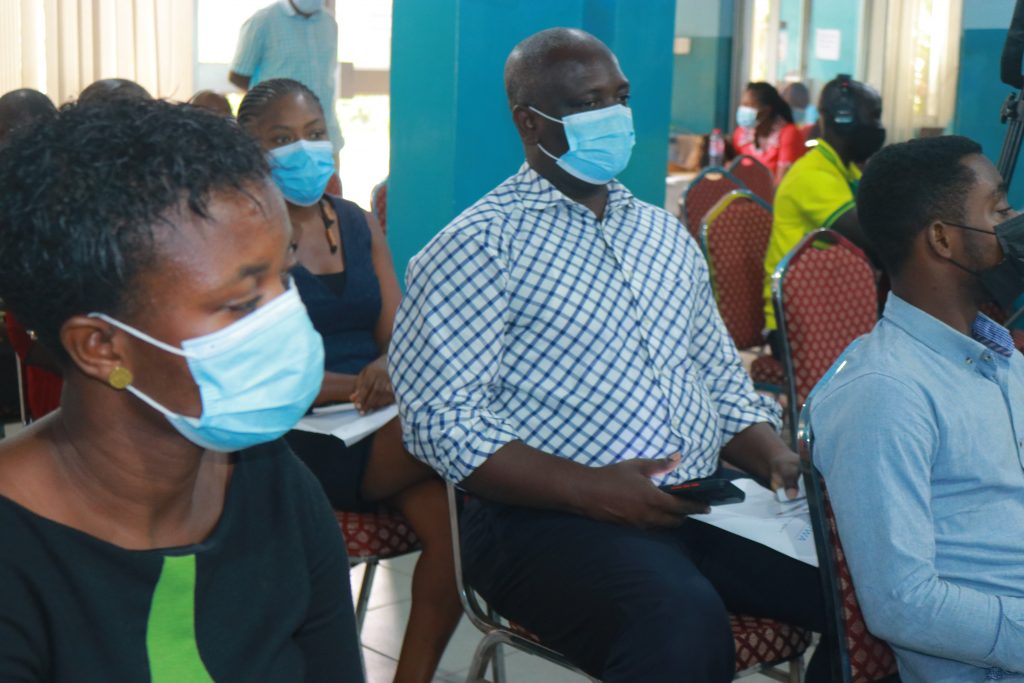Metropolitan, Municipal and District Assemblies (MMDAs) have been urged to stop exploiting ‘vagrants’ (the homeless, street hawkers, head porters, truck pushers, and market women, etc.) poor and vulnerable individuals who usually fall foul of the bye-laws due to their ignorance.
The African Courts on Human and People’s Rights on December 4, 2020, delivered a historic advisory opinion against vagrancy laws criminalizing the status of individuals as being poor, homeless, etc as against specific wrongful acts.
It is at the back of this ruling that Crime Check Foundation (CCF) supported by the Open Society Initiative for West Africa (OSIWA) is implementing the ‘Decriminalizing Vagrancy Laws and Advocacy” project in three Regions in Ghana to create an enabling environment for ‘vagrants’ (the homeless, street hawkers, head porters, truck pushers, and market women, etc.) to know, claim and exercise their rights and responsibilities in Ghana.
Speaking at a press conference on some key findings during monitoring in the project districts, the Executive Director of CCF, Ibrahim Oppong Kwarteng said the incessant imprisonment of poor and vulnerable individuals because they are unable to pay fines imposed on them defeats the attainment of the Sustainable Development Goal 16.3, access to justice for all by 2030. Their imprisonment, he said also contributes to prison congestion.

Mr. Kwarteng, therefore, entreated MMDAs to rather educate the citizenry on their bye-laws so that they become aware of their rights and responsibilities to reduce their violation of the laws.
“Section 181 of the Local Governance Act, 2016 (Act 936) confers powers on MMDAs to make bye-laws for their local jurisdictions. These bye-laws cover licenses for business operations, Sanitation, fees, offences, as well as punishments. However, while citizens’ knowledge of the bye-laws and other relevant legal provisions are vital for compliance, the MMDAs are hardly able to provide education on the laws for their citizens.
“Indeed, in the accounts of many officials, including Municipal Chief Executives of some of the project MMDAs, the sensitizations facilitated through the CCF-OSIWA Partnership were the first-ever in the lives of these Assemblies. The overall effect is that poor and vulnerable citizens become victims of the laws because they lack knowledge of the laws that affect their lives,” he said.
Other findings he noted included, lack of social amenities, which he said pushes voiceless citizens to break the law, abuse of the rights of vagrants, targeting vagrants as a source of revenue, and lack of legal support.
Outlining some recommendations, Mr. Kwarteng who also doubles as the Ambassador Extraordinaire of Ghana Prisons called for the passage of the Non-Custodial Sentencing Bill into law so that vagrants who flout the laws are made to undertake community labour instead of putting them in custody for committing petty.
“Some vagrants and other poor persons who are arrested and fined end up in jail when they are unable to pay the fines. CCF is calling for the passage of the Non-Custodial Sentencing Bill into Law. This will ensure that judges have other sentencing options such as community service: sweeping and desilting choked gutters, among others. This is because our prisons are congested with deplorable conditions,” he advocated.
He also recommended that MMDAs prioritize the needs of vagrants and factor them into their development plans and also called on the media and local businesses to support efforts to improve citizens’ knowledge of the laws consistent with SDG 16.3.
About OSIWA: The Open Society Initiative for West Africa (OSIWA), established in 2000, is a grant-making and advocacy organization focused on equality, justice, democratic governance, human rights, and knowledge generation. It is part of the global network of Open Society Foundations spread across 37 countries around the world.
By Rudolph Nandi
www.rudnankp4@gmail.com

















































